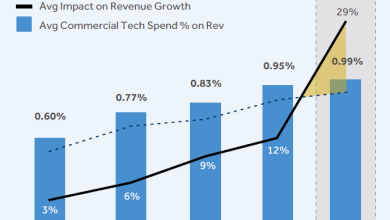The cryptocurrency industry faces an unprecedented crisis that demands immediate action beyond recent legislative achievements: over $140 billion in digital assets remain permanently inaccessible and growing by $4 billion annually, representing a massive threat to individual wealth and national economic security. While America races to establish itself as the global leader in digital assets through landmark legislation like the GENIUS Act, signed into law by President Trump in July 2025, the nation must simultaneously address the critical vulnerability posed by inaccessible cryptocurrency holdings that could undermine market confidence and provide attack vectors for adversaries.
The GENIUS Act’s mandates for federal digital asset integration have exposed the inadequacy of conventional legal frameworks for asset recovery, creating an urgent imperative for innovative approaches powered by artificial intelligence that can operate immediately within established constitutional authority. Recent events involving Salomon Brothers’ aggressive attempts to claim “abandoned” Bitcoin wallets through blockchain notices have starkly demonstrated both the massive scale of this problem and the dangerous legal vacuum that exists. According to Wall Street Journal figures cited in Salomon Brothers’ announcement, approximately 0.5% of digital wallets are abandoned by owners who lost their private keys, yet these wallets hold about 20% of Bitcoin and other digital assets—representing hundreds of billions in vulnerable wealth requiring systematic AI-enabled protection.
The Failure of Traditional Legal Approaches Exposed by Recent Events
Current asset recovery methods are fundamentally inadequate for addressing cryptocurrency emergencies, as the Salomon Brothers controversy clearly demonstrates. Traditional civil litigation requires months or years to resolve, while digital assets face permanent loss within hours of exchange failures or smart contract exploits. Regulatory approaches remain trapped in bureaucratic processes that cannot keep pace with rapidly evolving threats, leaving American cryptocurrency holders vulnerable to both criminal exploitation and foreign adversarial seizure attempts despite the regulatory clarity provided by recent legislation.
Salomon Brothers’ targeting of high-profile dormant wallets like the “1Feex” address holding 80,000 BTC using traditional property abandonment doctrines has triggered intense legal debates and community backlash while highlighting quantum computing vulnerabilities that only AI-powered solutions can adequately address. Industry experts warn that “6.51 million bitcoin worth of $700 billion is at stake” while the Bitcoin community moves too slowly to address emerging threats from criminal actors and nation-state adversaries developing their own AI-enhanced exploitation capabilities.
The existing legal infrastructure was designed for physical assets and traditional financial instruments, creating dangerous gaps that adversaries are actively exploiting to target American digital wealth using increasingly sophisticated AI-powered attacks. Court-based recovery procedures require extensive documentation, lengthy discovery processes, and jurisdictional determinations that consume critical time while assets disappear permanently. Class action approaches may eventually provide compensation through settlement funds, but cannot prevent the immediate asset destruction that occurs during AI-accelerated exchange collapses or protocol failures. Traditional bankruptcy procedures offer no protection for cryptocurrency holders whose assets exist outside conventional legal frameworks, creating systematic vulnerabilities that undermine confidence in digital asset adoption and threaten America’s technological leadership.
Maritime Law: The Constitutional Foundation for AI-Enhanced Systematic Recovery
Maritime admiralty law provides the only existing legal framework with immediate operational authority to address cryptocurrency emergencies without waiting for new legislation or regulatory approval, while artificial intelligence transforms salvage capabilities from reactive to predictive and proactive. The recent passage of comprehensive cryptocurrency legislation has created both unprecedented opportunities and urgent imperatives for AI-powered systematic asset recovery solutions that complement rather than compete with new regulatory frameworks.
Article III, Section 2 of the Constitution grants federal courts admiralty jurisdiction that has been successfully applied to novel circumstances for over two centuries, with Supreme Court precedent in Executive Jet Aviation v. City of Cleveland, 409 U.S. 249 (1972) establishing principles for extending federal jurisdiction when activities demonstrate sufficient connection to interstate commerce. While this case involved aviation rather than maritime activities, it demonstrates how federal courts can apply established jurisdictional principles to novel commercial circumstances involving cross-border activities and interstate commerce—principles that now extend naturally to blockchain salvage operations.
Blockchain networks function identically to maritime shipping lanes, facilitating cross-border value transfers through decentralized protocols that transcend national jurisdictions, while AI systems can monitor these networks continuously for distress signals and recovery opportunities. The constitutional foundation ensures that maritime-inspired applications cannot be challenged on jurisdictional grounds, while centuries of legal precedent provide robust authority that regulatory agencies cannot override or delay. This established framework offers immediate implementation capabilities that traditional approaches simply cannot match, providing critical advantages in fast-moving digital asset scenarios where AI-enhanced systems can respond within minutes to determine success or failure.
The AI-Powered MSAR Framework: Bridging Legislative Achievements and Recovery Imperatives
The recent passage of comprehensive cryptocurrency legislation demonstrates Congress’s commitment to establishing America as the global leader in digital assets, but also highlights the critical gap in addressing inaccessible assets through advanced technological means. The GENIUS Act establishes federal regulatory frameworks for stablecoins, requiring 100% reserve backing and clear consumer protections, while the CLARITY Act passed by the House in July 2025 provides comprehensive market structure frameworks defining which cryptocurrencies fall under SEC versus CFTC oversight.
An AI-powered Maritime-Inspired Systematic Asset Recovery (MSAR) framework could provide the missing component by adapting proven salvage principles to blockchain environments while maintaining transparency, due process, and community trust through intelligent automation. This framework could utilize established maritime compensation structures and legal precedents while creating AI-native blockchain implementation mechanisms that align seamlessly with the regulatory clarity provided by recent legislation.
The proposed AI-enhanced MSAR framework could implement automated legal authority through blockchain-based smart contracts powered by artificial intelligence systems that enable qualified salvors with proprietary recovery technologies to deploy capabilities under transparent, community-vetted procedures prioritizing owner protection and legitimate claims. Unlike the aggressive private approaches demonstrated by entities like Salomon Brothers, AI-powered MSAR could incorporate intelligent graduated intervention systems providing systematic safeguards preventing unauthorized claims while enabling professional recovery operations under established legal authority.
AI implementation could enable real-time risk assessment and automated notification systems—extending beyond traditional 180-day minimum periods compared to Salomon Brothers’ 90-day demands—using machine learning algorithms to optimize multiple communication channels including on-chain messaging, legal notices, and community outreach based on wallet behavior patterns and owner identification probabilities. All operations could be documented on immutable blockchain records with AI-generated public audit trails, creating accountability that builds ecosystem confidence rather than undermining it. Professional operators could utilize AI-optimized predetermined compensation structures based on established percentage-based awards reflecting asset value, complexity, and risk factors calculated through machine learning models, while integrating seamlessly with regulatory frameworks established by the GENIUS and CLARITY Acts.
National Security Imperatives and AI-Enhanced Strategic Competition
America’s adversaries are actively developing capabilities to exploit abandoned Western cryptocurrency assets for economic warfare purposes, creating urgent national security requirements for preemptive AI-enhanced asset recovery capabilities that complement America’s new position as the global leader in digital asset regulation. China and Russia have specifically targeted American digital asset vulnerabilities as vectors for intelligence operations and economic disruption using artificial intelligence systems, making comprehensive AI-powered recovery frameworks essential for protecting both individual wealth and broader economic security.
The AI-enhanced MSAR framework’s intelligent documentation and automated multi-party oversight structure could enable coordination between private sector capabilities and government security objectives while maintaining public accountability and community trust through transparent AI decision-making processes. Integration with existing anti-money laundering protocols mandated by the GENIUS Act and regulatory oversight mechanisms established by the CLARITY Act could ensure compliance while enabling AI-powered rapid response to emerging threats. This national security dimension transforms digital asset recovery from individual financial protection into strategic competition for American economic dominance in the global digital asset economy, where AI capabilities determine competitive advantage.
Unprecedented Opportunities for AI-Enabled Technology Recovery Operations
The framework could create unprecedented opportunities for salvage professionals possessing advanced AI-powered recovery technologies including quantum-resistant cryptographic solutions enhanced by machine learning, proprietary private key reconstruction algorithms powered by neural networks, artificial intelligence systems for pattern recognition in damaged wallet files and blockchain forensics, and AI-optimized specialized hardware recovery techniques. Professional certification requirements could ensure operators possess requisite technical expertise in both traditional recovery methods and cutting-edge AI applications while comprehensive insurance coverage and bonded operations could provide financial protection for deploying expensive AI-enhanced equipment and sophisticated recovery methods.
Maritime-inspired legal applications powered by artificial intelligence could provide competitive advantages through immediate operational authority, AI-optimized compensation mechanisms, and comprehensive risk mitigation that enable salvors with proprietary AI-enhanced recovery technologies to deploy capabilities without regulatory uncertainties that constrain traditional approaches. The framework could enable AI-powered asset preservation measures through established legal authority while providing critical time advantages over conventional approaches that struggle with jurisdictional disputes and bureaucratic delays.
Professional operators could benefit from AI-optimized predetermined compensation structures, automated deployment authority, and superior legal protection compared to ad-hoc methods that create liability exposure and community opposition. Early adopters of AI-enhanced MSAR-compliant technologies and procedures could establish market leadership positions while building regulatory relationships and community trust within the clear legal frameworks provided by recent federal legislation through transparent AI-driven operations.
AI-powered MSAR could implement performance-based compensation structures specifically rewarding technological innovation, successful owner reunification through machine learning identification systems, and ethical operation rather than simple asset seizure. Salvors achieving higher recovery rates through AI optimization, faster AI-enabled deployment times, enhanced security protocols powered by artificial intelligence, and successful owner restoration through intelligent matching algorithms could command premium compensation while building sustainable industry relationships through transparent, community-trusted operations that enhance rather than threaten the regulatory environment Congress has established.
Constitutional Authority and Proven Market Demand
The constitutional authority exists through established federal jurisdiction, recent legislative achievements provide clear regulatory frameworks for digital asset operations, AI-enhanced technical capabilities have been proven through existing blockchain forensics and machine learning recovery operations, and market demand is demonstrated by hundreds of billions in vulnerable assets requiring intelligent protection systems. The cryptocurrency industry must act decisively to develop and implement AI-powered systematic recovery frameworks before quantum computing threats materialize or foreign adversaries develop superior AI exploitation capabilities.
Current market conditions create urgent demand for AI-enhanced systematic solutions that complement and enhance America’s new position as the global leader in digital asset regulation. The Salomon Brothers controversy demonstrates that private entities will continue exploiting legal uncertainties while generating community backlash and regulatory scrutiny unless AI-powered systematic frameworks are developed. The development of AI-enhanced MSAR could provide qualified salvors with advanced artificial intelligence technologies the opportunity to capitalize on market demand through transparent, legally-grounded operations that build ecosystem confidence and align with the regulatory clarity Congress has established.
With Congress now providing unprecedented support for digital asset innovation through comprehensive legislation, professional organizations, technology companies, and legal experts should collaborate immediately to design, test, and deploy AI-powered MSAR-based solutions that protect both individual wealth and national economic security while reinforcing America’s leadership position in the global digital asset economy. The immutable documentation created through AI-enhanced blockchain-based MSAR contracts could provide superior evidence trails compared to conventional procedures and ad-hoc notification methods, creating accountability and transparency that builds client confidence and regulatory acceptance through intelligent automation.
The Time for Action Is Now
The time for reactive approaches has passed. As America establishes itself as the world’s crypto capital through landmark legislation, the industry must proactively develop AI-enhanced maritime-inspired recovery frameworks to provide comprehensive protection against criminal exploitation, foreign adversarial threats, and quantum computing vulnerabilities while creating sustainable competitive advantages for qualified professionals through ethical AI-powered operation and community engagement.
America must embrace AI-enhanced maritime-inspired legal applications and systematic recovery framework implementation to protect digital asset interests and maintain technological leadership in an increasingly competitive global environment where artificial intelligence determines strategic advantage. The constitutional authority exists, legal precedent is established, AI-powered operational capabilities are proven, and legislative support is unprecedented. The only question remaining is whether America will seize this opportunity to implement comprehensive AI-enhanced protection for digital assets or allow adversaries to exploit our hesitation while hundreds of billions in cryptocurrency wealth remain vulnerable to permanent loss and AI-powered opportunistic claims.
Technology companies possessing quantum-resistant capabilities, AI-enhanced blockchain forensics expertise, and specialized machine learning hardware recovery techniques should begin immediate development of AI-powered MSAR-compliant systems that could deploy within the transparent, legally-protected environment that recent legislation has created. Professional salvors with unique AI-enhanced recovery technologies have unprecedented opportunities to leverage legal and commercial advantages through maritime-inspired frameworks that reward both technical excellence and ethical AI-powered operation.
Contact maritime law specialists and blockchain technology experts to begin collaborative development of artificial intelligence-powered systematic recovery frameworks. With Congress providing unprecedented regulatory clarity and support for digital asset innovation, the window for establishing America’s leadership in comprehensive AI-enhanced asset protection is open now—but it won’t remain open indefinitely as quantum threats approach and adversaries develop superior AI exploitation capabilities.





